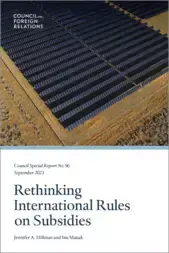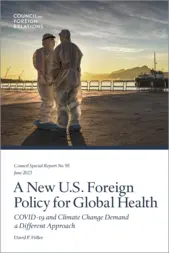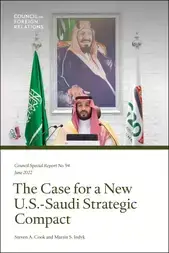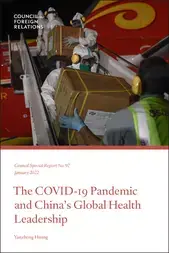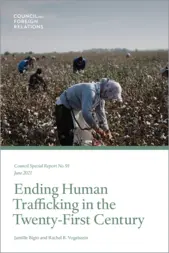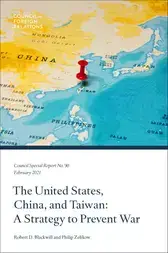Books & Reports
-
China and Russia’s quasi-alliance endangers U.S. national interests. Its management will prove a generational task for American policymakers—but there are grounds for optimism, argue CFR Senior Fellow Robert Blackwill and Center for a New American Security CEO Richard Fontaine.
-
The rapidly changing landscape of foreign influence demands a new approach, argues Senior Fellow for Global Governance Miles Kahler. Countering malign influence from abroad will require a stronger democracy at home.
-
World Health Organization (WHO)
Lessons from the COVID-19 pandemic could revolutionize global health security, but the window for change is closing—quickly. In the latest Council Special Report, Yanzhong Huang and Rebecca Katz outline the urgent reforms that could lead to a safer, healthier world. -
The World Trade Organization needs an updated toolbox in the face of rising industrial policies across the globe.
-
The United States should treat pandemics and global warming as apex health threats to its national interests, argues David P. Fidler.
-
The United States and Saudi Arabia both stand to benefit by renewing their central strategic partnership, argue Steven A. Cook and Martin S. Indyk.
-
Reflecting sunlight should be considered a potential stopgap for rising global temperatures, argues Stewart M. Patrick.
-
China's ambitions for global health leadership are faltering as the COVID-19 pandemic persists. The country's mixed record of addressing the virus offers opportunities for U.S. global health leadership, writes Yanzhong Huang.
-
Human trafficking bolsters abusive regimes and criminal groups, weakens global supply chains, fuels corruption, and undermines good governance. Jamille Bigio and Rachel B. Vogelstein urge the United States to increase investment in anti-trafficking measures.
-
To preserve peace in the Taiwan Strait, Robert D. Blackwill and Philip Zelikow propose the United States make clear that it will not change Taiwan’s status, yet will work with allies to plan for Chinese aggression and help Taiwan defend itself.
-
Talent flight, institutional stagnation, and ever-evolving policy challenges such as COVID-19 overwhelm a beleaguered State Department. American diplomacy requires serious changes, starting with institutional reform.
-
To counter Chinese and Russian visions for the global internet, the United States and its allies should form a digital trade zone, a bloc of like-minded democracies that cooperates on cyber issues and through which digital trade flows freely.
 Online Store
Online Store

